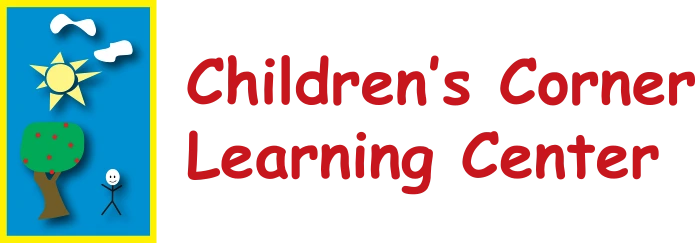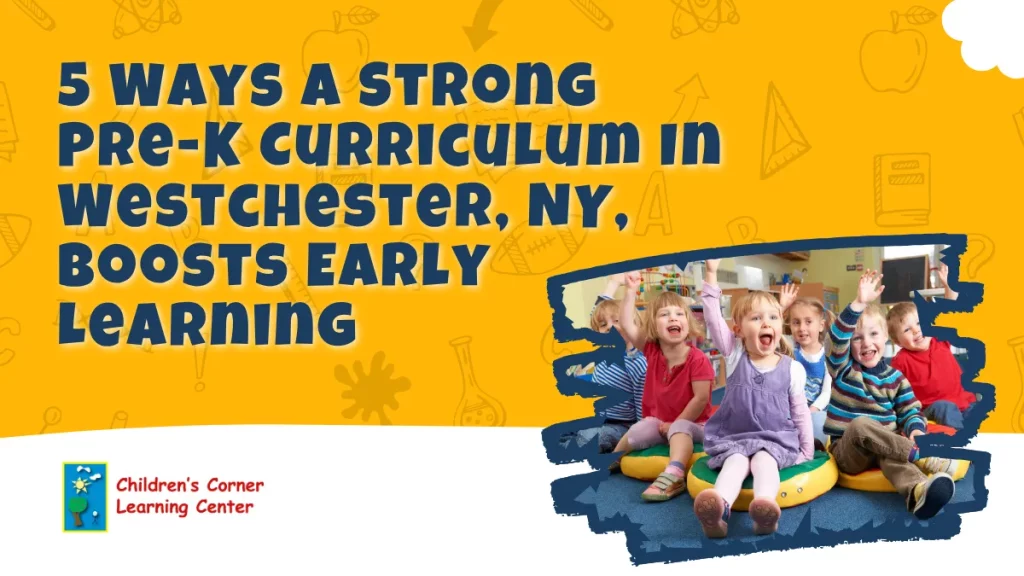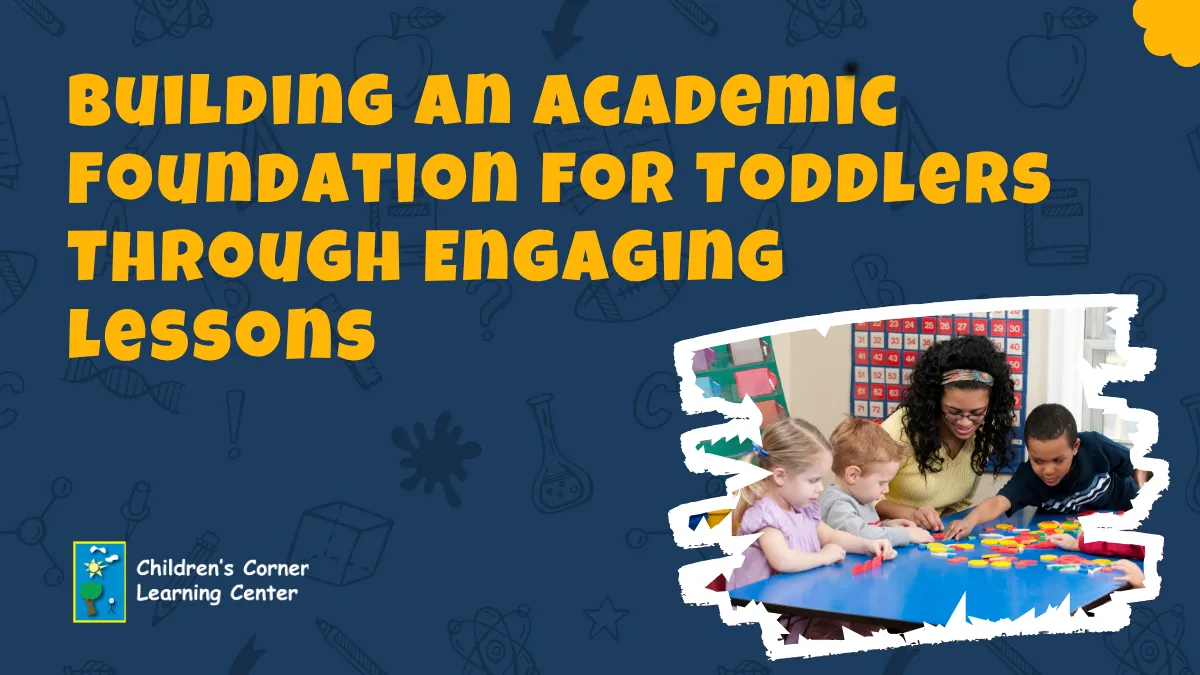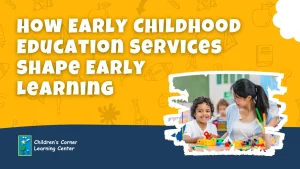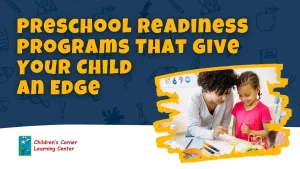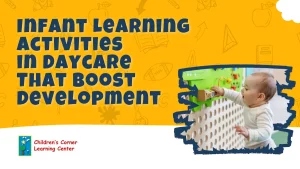A well-designed pre-k curriculum in Westchester, NY, is vital in preparing children for long-term academic and personal success. During these foundational years, structured learning experiences help young learners build essential skills in language, problem-solving, social development, and self-regulation. Programs that follow a comprehensive curriculum create opportunities for children to explore, question, and grow in a guided and supportive environment.
Through intentional teaching strategies and age-appropriate content, children gain the confidence and readiness needed for kindergarten and beyond. For families in Westchester, choosing a program with a strong curriculum ensures that their child benefits from individual attention and a cohesive educational framework. This blog explores five core ways an effective Pre-K curriculum can enhance early learning and set the stage for future achievement.
1. The Vital Role of High-Quality Pre-K Programs in Westchester
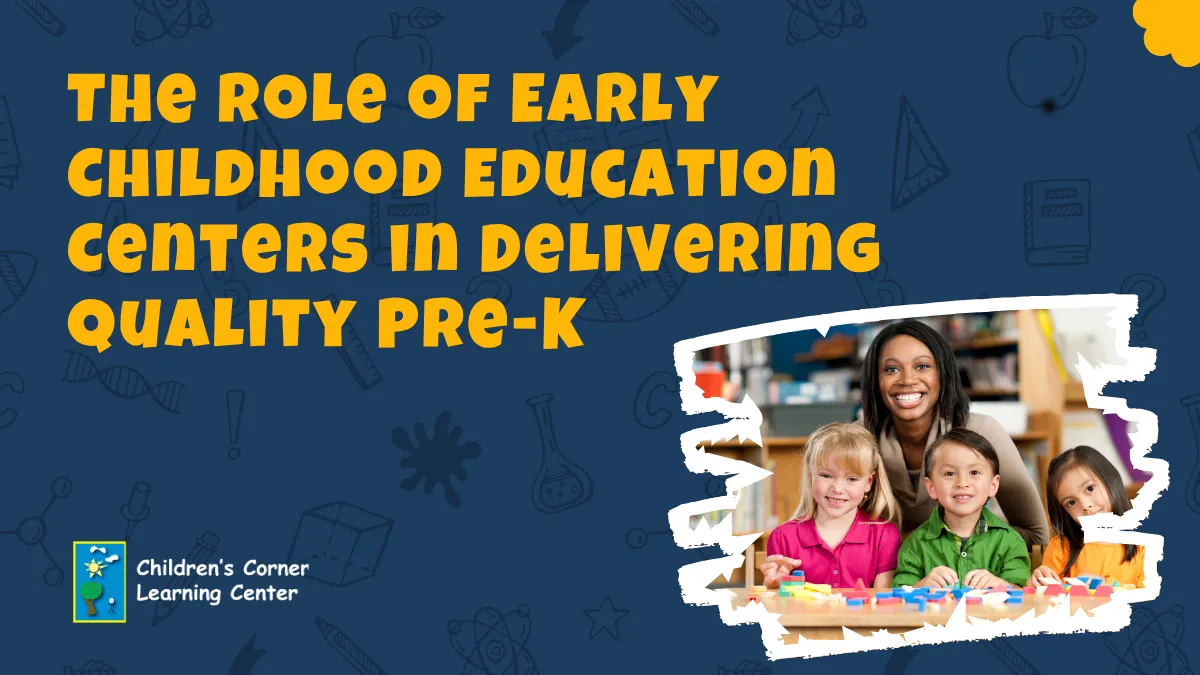
Early childhood education centers serve as the foundation for a child’s educational journey, especially during the Pre-K years. These centers provide structured, nurturing environments where children are introduced to age-appropriate academic content, daily routines, and social experiences that promote growth across developmental domains. A strong Pre-K curriculum delivered through such settings ensures that learning is intentional, comprehensive, and tailored to meet the particular needs of young learners.
Structured Learning with Developmental Goals
High-quality early childhood centers implement curriculum frameworks aligned with early learning standards. These programs focus on cognitive, physical, emotional, and social development. Through planned activities and measured goals, educators guide children through experiences that foster curiosity, resilience, and independence. Key characteristics include:
- Certified educators: Teachers trained in early childhood development and instructional techniques
- Developmentally appropriate practices: Lessons designed to match children’s learning stages
- Safe and stimulating environments: Classrooms arranged to support exploration and discovery
- Consistent routines: Schedules that create structure and reinforce expectations
Integration of Curriculum and Care
Pre-K programs in professional centers ensure that education and caregiving work in unison. Children receive both academic instruction and emotional support throughout the day. This integration allows for:
- Holistic development: Addressing physical, intellectual, and emotional needs
- Collaborative teaching approaches: Teachers adapt content to each child’s pace
- Family partnerships: Ongoing communication between educators and parents
In Westchester, NY, early childhood education centers are instrumental in setting the standard for quality Pre-K instruction. By combining evidence-based curriculum with attentive care, these centers lay the groundwork for future academic success and lifelong learning.
2. How Pre-K Programs Develop Preschool Readiness Skills
One of the primary objectives of Pre-K programs is to strengthen preschool readiness skills that prepare children for the transition to kindergarten. These skills extend beyond early academics and include emotional regulation, social awareness, self-help abilities, and communication. A well-structured Pre-K curriculum addresses all areas of development to ensure that each child gains the confidence and capability needed for future success.
Fostering Social and Emotional Growth
Early learners must develop the ability to manage emotions, cooperate with peers, and follow group instructions. Pre-K classrooms create structured opportunities for children to practice these behaviors through daily routines and teacher-guided interactions. Key focus areas include:
- Following directions: Participating in group activities and transitions
- Sharing and turn-taking: Developing cooperation and patience
- Recognizing emotions: Identifying feelings in themselves and others
- Building relationships: Forming positive bonds with peers and adults
These skills form the emotional foundation necessary for a successful school experience.
Encouraging Independence and Self-Help Skills
Children are gradually encouraged to take responsibility for age-appropriate tasks in a high-quality Pre-K setting. Programs support autonomy through:
- Personal care routines: Handwashing, dressing, and managing belongings
- Classroom responsibilities: Helping with cleanup or organizing materials
- Decision-making opportunities: Choosing between activities and solving simple problems
- Task completion: Learning to begin and finish short assignments
Pre-K programs that emphasize preschool readiness skills ensure that children enter kindergarten equipped with the tools to engage, adapt, and learn. In Westchester, NY, centers that prioritize these competencies provide families with a strong foundation for ongoing educational growth.
3. Building an Academic Foundation for Toddlers Through Engaging Lessons

A strong Pre-K curriculum focuses on building an academic foundation for toddlers through thoughtfully designed lessons introducing core concepts in literacy, numeracy, science, and the arts. At this stage, learning should be structured and exploratory, offering young children opportunities to engage with new ideas in age-appropriate, meaningful ways. These early academic experiences help toddlers form the skills and habits essential for long-term educational success.
Introducing Early Literacy and Language Skills
Language development is critical to early education. Pre-K classrooms encourage verbal expression, vocabulary growth, and early literacy through:
- Storytime and read-alouds: Exposure to language patterns, print awareness, and listening skills
- Phonemic activities: Songs, rhymes, and games that focus on letter sounds
- Name recognition and writing: Introducing alphabet familiarity through tracing and practice
- Conversation and questioning: Encouraging children to describe, explain, and engage
These activities strengthen communication and lay the groundwork for reading readiness.
Building Foundational Math and Science Concepts
Early numeracy and scientific thinking are integrated into daily routines through hands-on experiences. Key areas include:
- Counting and number recognition: Using objects and visual aids to teach quantity and order
- Sorting and Patterning: Understanding relationships and categorization
- Measurement and comparison: Using simple tools and language for size, volume, and time
- Observation and inquiry: Exploring nature, experimenting with materials, and making predictions
Pre-K programs ensure toddlers develop curiosity, critical thinking, and a love of learning by embedding academic skills into interactive lessons. In Westchester, NY, early education centers that emphasize engagement and foundational instruction help children begin their academic journeys with confidence and enthusiasm.
4. Encouraging Critical Thinking and Problem-Solving at an Early Age
Developing critical thinking and problem-solving abilities begins in the early years of education. A strong Pre-K curriculum introduces these skills through structured play, guided discovery, and purposeful learning activities. These experiences help children learn how to analyze situations, make decisions, and apply reasoning—essential skills throughout their academic journey and daily lives.
Promoting Exploration and Independent Thinking
Children are naturally curious, and Pre-K programs are designed to nurture that curiosity. By creating opportunities for exploration, educators guide children to observe, question, and evaluate. Effective approaches include:
- Open-ended questions: Encouraging children to explain their thinking
- Hands-on experiments: Introducing cause-and-effect through safe and simple activities
- Choice-based activities: Allowing children to select tasks and take responsibility for outcomes
- Reflective discussions: Helping children assess what they learned from a task or experience
These methods build confidence and teach children to think beyond immediate answers.
Fostering Collaborative Problem-Solving
Working with peers to solve problems teaches children to communicate, listen, and negotiate. Group activities help young learners practice cooperation while engaging in tasks that require creative thinking. Key components include:
- Puzzle and construction tasks: Promoting spatial reasoning and teamwork
- Dramatic play scenarios: Encouraging children to resolve pretend challenges collaboratively
- Guided group projects: Facilitating planning, role-sharing, and reflection
- Story-based problem-solving: Using narratives to explore consequences and decision-making
Pre-K programs in Westchester, NY, equip children with tools to process information, work through challenges, and engage meaningfully with their learning environments by embedding critical thinking and problem-solving into daily instruction.
5. Supporting Communication, Collaboration, and Social Confidence
A high-quality Pre-K curriculum strongly emphasizes developing communication skills, promoting collaboration, and building social confidence. These foundational abilities support success in academic and social settings, enabling children to express themselves clearly, interact respectfully with peers, and participate confidently in group activities.
Enhancing Verbal and Nonverbal Communication
Pre-K classrooms provide rich language experiences, encouraging children to develop expressive and receptive communication skills. Educators guide children in using words, gestures, and facial expressions to communicate effectively. Core strategies include:
- Daily conversations: Structured opportunities to speak and listen during routines
- Storytelling and role-play: Encouraging expressive language through imaginative scenarios
- Vocabulary development: Introducing and reinforcing new words during activities
- Visual supports: Using charts, pictures, and cues to enhance understanding
These approaches help children become more confident in sharing their thoughts and interpreting others’ messages.
Fostering Group Interaction and Teamwork
Collaborative experiences teach children how to work in groups, resolve conflicts, and contribute to shared goals. A supportive Pre-K environment introduces these skills through:
- Partner and group projects: Tasks that require joint planning and cooperation
- Turn-taking games: Reinforcing fairness and patience
- Classroom responsibilities: Roles that encourage participation in group settings
- Conflict resolution practice: Guided strategies to address disagreements respectfully
Building Confidence Through Positive Social Experiences
Social confidence develops when children are encouraged, supported, and given the space to grow. Educators promote self-assurance by:
- Celebrating effort and progress: Reinforcing a growth mindset
- Creating inclusive environments: Ensuring every child feels valued and accepted
- Modeling respectful behavior: Demonstrating empathy, kindness, and respect
Through intentional instruction and consistent support, Pre-K programs in Westchester, NY, help children communicate clearly, collaborate effectively, and confidently engage socially.
Conclusion
A strong Pre-K curriculum in Westchester, NY, does more than introduce early academics—it establishes the core skills that support a lifetime of learning. Each component is carefully designed to nurture the whole child, from language development and foundational math to problem-solving, cooperation, and confidence. When children are engaged through intentional, age-appropriate instruction in a structured and supportive environment, they are better prepared to transition into kindergarten and meet future academic expectations with success.
Take the first step toward your child’s successful start. Book a tour today or call (800) 933 7757 to see how the Children’s Corner Learning Center creates a strong beginning for every learner.
